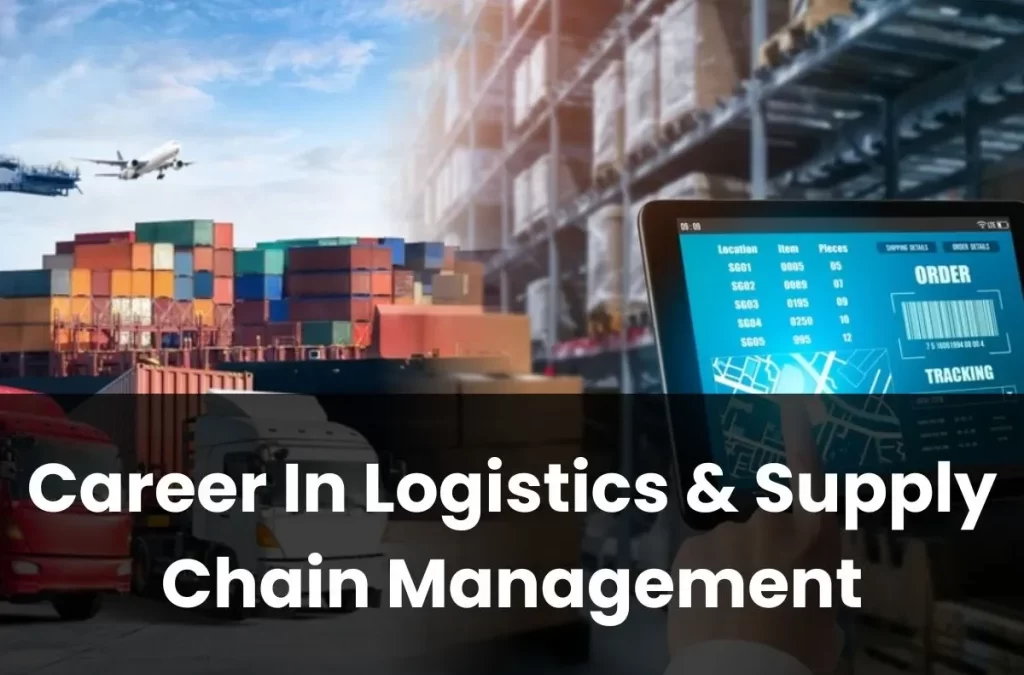The logistics industry is a dynamic and integral part of the global economy, offering a wide range of career opportunities for graduates. As businesses continue to expand globally, the demand for skilled logistics professionals has never been higher. Whether you’re just starting your career or looking to specialize, here are some top logistics careers, along with the roles, responsibilities, required qualifications, and tips on how to prepare for a successful future in this field.
1. Supply Chain Manager
Roles and Responsibilities:
- Overseeing the entire supply chain process, from procurement to delivery.
- Coordinating with suppliers, manufacturers, and distributors.
- Implementing strategies to improve efficiency and reduce costs.
- Managing inventory and warehousing.
- Analyzing data to forecast demand and optimize supply chain operations.
Required Qualifications:
- Bachelor’s degree in logistics, supply chain management, or a related field.
- MBA or specialized certifications (e.g., CSCP, CPIM) can be advantageous.
- Strong analytical and problem-solving skills.
- Excellent communication and negotiation skills.
Tips for Preparation:
- Gain experience through internships or entry-level positions in supply chain management.
- Develop strong analytical and data interpretation skills.
- Stay updated with the latest trends and technologies in supply chain management.
2. Logistics Coordinator
Roles and Responsibilities:
- Planning and coordinating shipments.
- Ensuring timely delivery of goods.
- Communicating with carriers and customers.
- Managing documentation and compliance with regulations.
- Resolving any issues that arise during transportation.
Required Qualifications:
- Bachelor’s degree in logistics, transportation, or a related field.
- Strong organizational and multitasking skills.
- Attention to detail and ability to work under pressure.
- Proficiency in logistics software and tools.
Tips for Preparation:
- Pursue internships or part-time jobs in logistics companies.
- Learn about different transportation modes and their regulations.
- Improve your communication and negotiation skills.
3. Warehouse Manager
Roles and Responsibilities:
- Supervising warehouse operations and staff.
- Managing inventory levels and storage.
- Ensuring safety and compliance with regulations.
- Implementing efficient warehouse processes and systems.
- Coordinating with other departments to meet delivery deadlines.
Required Qualifications:
- Bachelor’s degree in logistics, business administration, or a related field.
- Experience in warehouse management or operations.
- Strong leadership and organizational skills.
- Knowledge of warehouse management systems (WMS).
Tips for Preparation:
- Gain hands-on experience through internships or entry-level positions in warehouse operations.
- Develop leadership and team management skills.
- Familiarize yourself with different warehouse management systems.
4. Transportation Manager
Roles and Responsibilities:
- Managing the transportation of goods.
- Selecting carriers and negotiating rates.
- Ensuring compliance with transportation regulations.
- Tracking shipments and resolving issues.
- Analyzing transportation data to improve efficiency.
Required Qualifications:
- Bachelor’s degree in logistics, transportation, or a related field.
- Knowledge of transportation regulations and logistics software.
- Strong analytical and problem-solving skills.
- Excellent communication and negotiation skills.
Tips for Preparation:
- Gain experience through internships or entry-level positions in transportation management.
- Stay updated with transportation regulations and industry trends.
- Develop strong analytical and data interpretation skills.
5. Inventory Control Specialist
Roles and Responsibilities:
- Managing inventory levels and stock control.
- Conducting regular inventory audits.
- Implementing inventory management systems.
- Analyzing inventory data to forecast demand.
- Coordinating with suppliers and other departments.
Required Qualifications:
- Bachelor’s degree in logistics, supply chain management, or a related field.
- Experience in inventory management or supply chain operations.
- Strong analytical and problem-solving skills.
- Proficiency in inventory management software.
Tips for Preparation:
- Gain experience through internships or part-time jobs in inventory management.
- Develop strong analytical and data interpretation skills.
- Familiarize yourself with different inventory management systems.
Tips on How to Prepare for a Career in Logistics
- Gain Practical Experience: Internships and entry-level positions provide hands-on experience and help you build a strong foundation in logistics.
- Stay Updated: Keep abreast of the latest industry trends, technologies, and regulations.
- Network: Connect with industry professionals and join logistics associations to expand your network and opportunities.
- Develop Key Skills: Focus on developing analytical, problem-solving, communication, and organizational skills.
- Pursue Further Education: Consider advanced degrees or certifications to enhance your qualifications and career prospects and keep upskilling regularly.
Conclusion
A career in logistics offers diverse opportunities and the potential for growth and advancement. By understanding the various roles, responsibilities, and qualifications required, and by gaining practical experience and continuous learning, you can pave the way for a successful future in this dynamic industry. Whether you aspire to be a supply chain manager, logistics coordinator, or transportation manager, the logistics field is ripe with opportunities for motivated graduates.
For more information about our programs and to apply, visit GIIL and take the first step towards a rewarding career in logistics.

